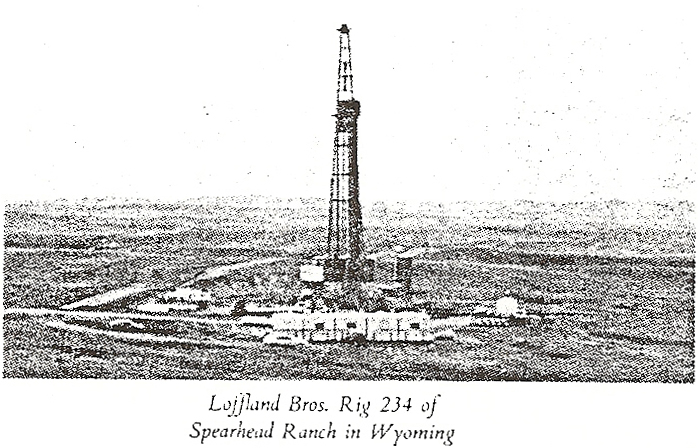-
despite
protest. In one press conference he stated his desire to “see 87 Sisters, not
just Seven.” The Sierra Club and the eccentric California Governor Jerry Brown,
whose own family investment in certain Indonesian oil and gas import projects
could be threatened as well by the new program, have joined ARCO and Exxon in
opposing Watt’s new plan.
-
Law
and sea treaty frozen:
It was the recommendation of Watt that led to the early April decision by
President Reagan to postpone the schedule ratification of the so-called Draft
Treaty on Law of the Sea. The treaty is largely the product of the infamous
Elliot L. Richardson, a founding member of the Trilateral Commission, who served
as treaty negotiator under Carter. As constituted it would repudiate
centuries-long principles of international law and bind the United States to
offshore production limits on certain strategic minerals such as manganese,
believed to exist in abundance offshore. Richardson’s draft would have given
preferential treatment to the London- based Canadian mining interests at the
expense of the vital long-term interests of the United States. The Trilateral
draft would have further established a supranational taxation of such strategic
mining receipts, administered under the auspices of the United Nations – a precedent to give
the “one world government” advocates of the Trilateral Commission a
self-financing vehicle to further undermine sovereignty of nation-states. The
treaty further deals with boundary limits for offshore oil and gas development,
to as much as a 200-mile limit. Watt’s decision has brought swift reaction from
media whose editorial policies are closely tailored to the Trilateral
Commission-such as Cyrus Vance’s New York Times; and from mineral conglomerates ties to
the London-based mineral cartels that stood to pull off a “quiet strategic
coup,” names Royal Dutch/Shell, Rio Tinto Zinc, British Petroleum and others.
-
Increased
access to onshore oil and gas lease land:
Reversing the brazen anti-development policies of the Andrus tenure, Watt’s
office announced on May 21 that it was accepting applications from companies
wishing to explore for oil and gas on more than 100 million wishing to explore
for oil and gas on more than 100 million acres in Alaska. This was the first
initiating step toward development of the first onshore leasing program for
public lands in Alaska in 15 years. Not surprisingly, ARCO one of the
beneficiaries along with British Petroleum (SOHIO) and Exxon, of the earlier
sale, has funneled millions of dollars to various “anti-oil” groups who have
helped lock up the vast Alaskan mineral potential from other “competitors.”
Under Watt, the Bureau of Land Management is also beginning to unblock the
deliberate sabotage of various exploration and drilling permits issued by the
Bureau of Land Management prior to drilling for oil and gas on BLM-administered
lands. Under Andrus, drilling permit applications going back more than two years
were still stacked in regional offices under the Carter “no-to-development”
mandate. BLM lands contain some of the riches potential deposits of oil and gas
deposits yet to be discovered, as recent discoveries by independent companies in
the Rocky Mountain Overthrust Belt attest.
-
Acted
to revoke prior federal land withdrawals: In
his first official act after being sworn in on May 21, Assistant Secretary
Carruthers signed 83 public land orders revoking withdrawal of about 680,000
acres of Federal Land in 11 western states. “These revocation are a positive
move toward accelerated multiple-use for America’s wealth of public land”
Carruthers declared, adding that “The need for these resources is vital to our
economy and our national security.” The lands are now open to mineral
development, grazing for livestock, timber harvesting and recreation. One
affected parcel, in Arizona State Division of Mineral Resources endorsed that
revocation. Most of the lands were originally withdrawn, some as far back 1896,
to forestall mineral exploration and often were political in nature.
-
Lifted
freeze on West Virginia coal reclamation project:
The Interior Department, on April 2, ordered expedited treatment for planned
reclamation for West Virginia abandoned coal mine land. Under the Surface Mining
Control and Reclamation Act of 1977, the Office of Surface Mining had collected
more than $60 million since 1977, for land and water restoration based on a fee
levied on mined coal.
-
Began
reopening Appalachian coal leasing:
On May 28, the Bureau of Land Management announced the first coal sale in the
southern Appalachian coal production region under the Department’s new program
to make more Federal coal resources available. Leases on an estimated 37 million
tons were sold. This eastern sale followed two earlier BLM sales of federal coal
land leases in the Green River-Wam’s Fork region or northwestern Colorado and
southern Wyoming.
-
Moves
to establish effective federal water development policy: As chairman of a
Cabinet body called Council on Natural Resources and the Environment (see
below), Watt has moved to abolish certain ineffective coordinating agencies for
water policy, to replace the now defunct Water Resources Council and Office of
Water Research and Technology. The new body, tentatively run out of Watt’s
Office of Water Policy in Interior, would coordinate more than 300 earth-moving,
canal, dam and waterway projects of Interior, Army Corps of Engineers, and other
federal agencies dealing with vital water policy. Carter made water a virtual
issue of insurrection in many water-scarce western states with announcement of
his water project “hit list.” There has not been one new water project initiated
federally in the past four years, despite crisis-level drought and water related
problems throughout the nation. Watt’s subcabinet working group, consisting of
assistant secretaries from Interior, Agriculture, Army Corps of Engineers,
Environmental Protection Agency and Office of Management and Budget, is chaired
by William Gianelli, assistant secretary of Army for civil works in the Corps of
Engineers and Reagan’s Water Resources Director in California for six years.
James Elder of the Sierra Club’s Washington office predictably termed the group
“a power grab for more money into water projects. Watt is moving to make a
bigger pork-barrel.”